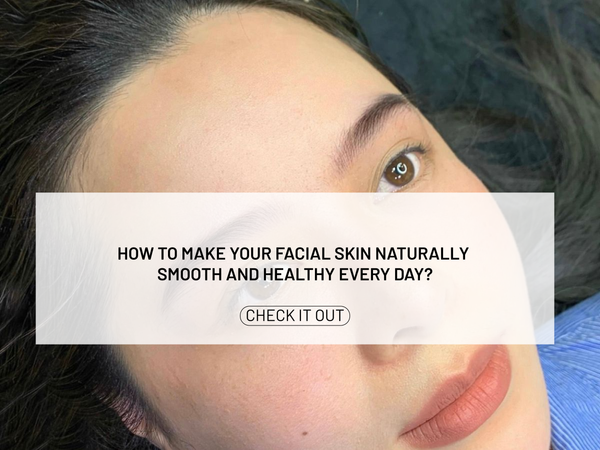Explore the Vitamin Skin Regimen: The Right Way to Supplement for Beautiful Skin
The vitamin skin regimen is an important part of caring for and maintaining healthy skin. In this article, we will explore the benefits of supplementing vitamins for the skin, learn about the necessary types of vitamins, and how to use them effectively.
Highlights
- Provides moisture to the skin, helping to improve collagen structure.
- Effectively minimizes acne and skin inflammation.
- Vitamin C helps brighten the skin and prevent aging.
- Choosing the right products for your skin type is very important.
- Vitamins should be supplemented through diet and skincare products.
Benefits of the Vitamin Skin Regimen
Improving Collagen Structure
Supplementing vitamins for the skin helps improve collagen structure in the skin. This not only helps the skin become firmer but also reduces wrinkles, giving the skin a youthful appearance. We can see that:
- The skin becomes more elastic.
- Minimizes sagging.
- Enhances skin health.
Maintaining Moisture for the Skin
One of the important benefits of the vitamin regimen is maintaining moisture for the skin. When the skin is adequately hydrated, we will:
- Prevent dryness and flaking.
- Keep the skin soft and smooth.
- Enhance the skin's ability to protect against harmful environmental effects.
Minimizing Acne and Skin Inflammation
Using vitamins correctly can help minimize acne and skin inflammation. When the skin is adequately hydrated and nourished, acne conditions will improve significantly. We can:
- Limit the appearance of blackheads and pimples.
- Soothe inflammation and irritation on the skin.
- Enhance the skin's recovery ability after acne.
Important Types of Vitamins for the Skin

Vitamin A
Vitamin A is one of the most important vitamins for the skin. It helps protect the skin from the effects of sunlight and participates in the cell regeneration process. When lacking vitamin A, the skin can become dry and easily damaged.
Vitamin C
Vitamin C is not only a powerful antioxidant but also helps boost collagen production. This helps the skin become firmer and reduces the appearance of wrinkles. We can supplement vitamin C through foods like oranges, tangerines, and guavas.
Vitamin E
Vitamin E is also an important antioxidant that helps protect the skin from environmental damage. It helps maintain moisture for the skin, making the skin softer and smoother. Vitamin E can be found in nuts and vegetable oils.
Vitamin D
Vitamin D is usually absorbed by the body from sunlight. It helps improve skin tone and prevents many skin diseases. We can supplement vitamin D through foods like salmon and milk.
Vitamin K
Vitamin K plays an important role in wound healing and reducing dark circles around the eyes. It helps brighten the skin and improve skin conditions. Vitamin K can be found in green vegetables and fermented foods.
Vitamin B
Vitamin B is essential for the skin, helping to prevent dehydration and keep the skin healthy. It supports the skin cell regeneration process, helping the skin become brighter. Vitamin B is abundant in grains and legumes.
How to Use Vitamins Correctly

Appropriate Dosage
When supplementing vitamins for the skin, we need to pay attention to the dosage. Using too much can harm the skin. Here are some notes:
- Vitamin C: Should be used at a concentration of 10-20% in products.
- Vitamin E: About 0.5-1% is sufficient.
- Vitamin A: Should start with a low concentration and gradually increase.
Best Time to Use
The timing of vitamin use is also very important. We should:
- Use vitamin C in the morning to protect the skin from UV damage.
- Vitamin A should be used in the evening to give the skin time to recover.
- Vitamin E can be used both day and night to keep the skin hydrated.
Combine with Diet
The diet also affects the effectiveness of vitamins. We should:
- Supplement with vitamin-rich foods like fruits and green vegetables.
- Drink enough water to help the skin absorb better.
- Avoid harmful foods like fast food and carbonated drinks.
Remember that skincare is not just about using products but also a comprehensive process. We need to be persistent and care for our skin properly to have healthy, beautiful skin.
Skincare Routine with Vitamins
Cleanse the Skin
To start, cleansing the skin is very important. We need to:
- Remove makeup to eliminate dirt and makeup residue.
- Wash the face with a cleanser suitable for your skin type.
- Exfoliate 2-3 times a week to help the skin absorb better.
Use Vitamin Serum
After cleansing, we should use a vitamin serum. Serums can penetrate deeply into the skin, providing:
- Essential nutrients for the skin.
- Helping the skin to be healthier and smoother.
Lock in Moisture with Moisturizer
Finally, we need to lock in moisture with a moisturizer. Moisturizers help:
- Prevent moisture loss.
- Maintain moisture for the skin throughout the day.
- Protect the skin from environmental effects.
Remember that skincare is not just a step but a continuous process. We should persistently implement it to have naturally healthy and beautiful skin. MinT is always with you on your skincare journey!
Notes When Choosing Vitamin Products for the Skin

Choose Products Suitable for Your Skin Type
When choosing vitamin products for the skin, the most important thing is to choose products suitable for your skin type. Each skin type has its own characteristics and needs, so:
- Oily skin: Should choose products that control oil and do not clog pores.
- Dry skin: Needs deep moisturizing products to restore moisture to the skin.
- Sensitive skin: Should prioritize natural products that do not contain harmful chemicals.
Check Product Ingredients
Before deciding to use, we need to check the product's ingredients. Avoid products containing harmful chemicals or that may irritate the skin. Prioritize products with natural and safe ingredients.
Patch Test Before Use
Before applying a new product to the entire face, we should test it on a small area of skin. This helps ensure that the product does not cause a negative reaction on the skin. If there are signs of irritation, stop using it immediately.
Adjust According to the Season
Each season has different weather characteristics, so we need to adjust products accordingly. In winter, the skin is usually drier, so thicker moisturizing products are needed. Conversely, in summer, lighter products will be more suitable.
Expert Advice
We should consult with dermatologists for the best choices for our skin. Remember that skincare is not just a habit but also a journey to maintain our natural beauty.
Methods of Supplementing Vitamins for the Skin
Using Functional Foods
We can supplement vitamins for the skin through functional foods. This helps provide essential nutrients for the skin quickly and effectively. Some popular functional foods include:
- Vitamin C: Helps brighten the skin and combat oxidation.
- Vitamin E: Protects the skin from environmental damage.
- Vitamin A: Supports skin cell regeneration.
Supplementing Through Natural Foods
The daily diet is also very important in supplementing vitamins for the skin. We should eat more natural foods such as:
- Fruits: Oranges, kiwis, guavas are rich in vitamin C.
- Green vegetables: Spinach, kale help provide vitamins A and K.
- Nuts: Sunflower seeds, chia seeds contain vitamin E and omega-3.
Using Skincare Products Containing Vitamins
In addition to diet, we can also use skincare products containing vitamins. These products often have good absorption and provide quick results. One modern method is vitamin iontophoresis, which helps deliver vitamins deep into the skin, providing optimal hydration and nourishment at MinT.
Let's take care of our skin together by applying these vitamin supplementation methods for healthy and radiant skin!
Side Effects and How to Handle Them

Signs of Side Effects
When using vitamins for the skin, we may encounter some side effects. These signs may include:
- Skin irritation: Itching, redness, or rashes.
- Dry skin: The skin may become dry and flaky.
- Acne: Some people may experience breakouts after using vitamin-containing products.
How to Handle Side Effects
If we encounter side effects, please take the following steps:
- Stop using the product immediately to avoid worsening the condition.
- Wash the face with warm water and a gentle cleanser to remove the product.
- Use a fragrance-free moisturizer to soothe the skin.
Expert Advice
We should always consult with a doctor or dermatologist before starting any regimen. This helps ensure safety and effectiveness for our skin.
When using products, you may encounter some unwanted side effects. Don't worry! Learn how to handle them effectively to protect your health. For more detailed information and useful tips, visit our website at MinT Foundation!
Conclusion
Skincare is an essential part of maintaining the health and beauty of the skin. To have healthy skin, you need to follow a proper and regular skincare routine. Remember that each skin type has its own needs, so choosing the right products is very necessary. Additionally, a healthy diet and lifestyle also play a significant role in improving skin conditions. Take care of yourself from the inside and out to always feel confident with your radiant skin!
Frequently Asked Questions
Why is it necessary to cleanse the skin before moisturizing?
Cleansing the skin helps remove dirt and oil, allowing moisturizing products to absorb better.
What moisturizing product should be chosen for oily skin?
Oily skin should choose gel moisturizers that are oil-free to avoid clogging pores.
Is sunscreen necessary to use daily?
Yes, sunscreen is very important to protect the skin from UV damage, even when you are indoors.
How often should exfoliation be done?
Exfoliation should be done 1-2 times a week to help the skin stay smooth without losing its natural protective layer.
Is toner necessary?
Toner helps balance the skin's pH and tighten pores, so it is very useful in the skincare routine.
How to choose a serum suitable for the skin?
Serums should be chosen based on the specific needs of the skin, such as brightening, hydrating, or anti-aging.



